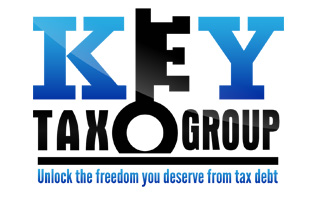When you owe back taxes to the IRS, the penalties for non-payment can be severe. From liens to the outright seizure of your assets or even jail time, the IRS is capable of aggressive and life-changing collections actions.
With the threat of liens and asset seizure looming over your family, owing back taxes can even take a toll on your mental health by increasing the anxiety, fear, and depression that results from possibly being unable to support yourself and your dependents.
Instead of living in fear of aggressive IRS collections actions and enormous monetary fees, you can take control of your financial future with the help of a qualified tax expert who can explain the negative consequences of unpaid taxes and help your family devise a strategy to get back on track.
Penalties and interest fees
The IRS assesses heavy monetary fees against those who leave their taxes unpaid or who owe taxes but fail to file a tax return. Generally, the longer the taxes go unpaid, the more you will owe as monthly late fees and daily interest charges (equal to the Federal short-term rate plus 3%) continue to accrue. In most cases, these rules apply:
- If you file your tax return but fail to pay the amount you owe in time, the late payment penalty is .05% of the total amount owed and continues to increase each month the taxes remain delinquent, up to 25%.
- If you owe taxes but don’t file a tax return, you will be assessed a failure-to-file penalty of 5% of the total amount you owe monthly, up to 25%. Additionally, if you file more than 60 days late, you’ll pay a minimum of $135 or 100% of the taxes you owe, whichever is less.
- The penalty for both filing late and paying late is 5% of the total amount of taxes owed, plus up to 100% of the total amount owed if you are more than 60 days late.
Actions the IRS can take against you for unpaid taxes.
In order to recoup the amount of back taxes you owe, the IRS has several actions they can take against the delinquent taxpayer:
- The first such action is a federal tax lien: This is essentially the IRS notifying your other creditors through public record that it has a claim against all of your property, including any assets you obtain after the lien begins.
- The second is a federal tax levy whereby the IRS seizes your property and assets. The levy can be against your wages, your bank account, retirement account, and/or future tax refunds. The IRS can also seize your house, car, boat, and other assets and sell them to satisfy the tax debt you owe.
- Finally, in some cases, the IRS can launch a criminal investigation for tax evasion which, if successful, can result in jail time as well as asset seizure.
How a qualified tax expert can help negotiate IRS debt.
A qualified tax expert can help you avoid the serious consequences of unpaid taxes by ensuring that the IRS’s assessment of your debt is accurate and can help you negotiate a payment arrangement with the IRS.
If you have received a notice that you owe taxes to the IRS, it’s important to act quickly. Contact the expert tax specialists at Key Tax Group for your free initial consultation today.
